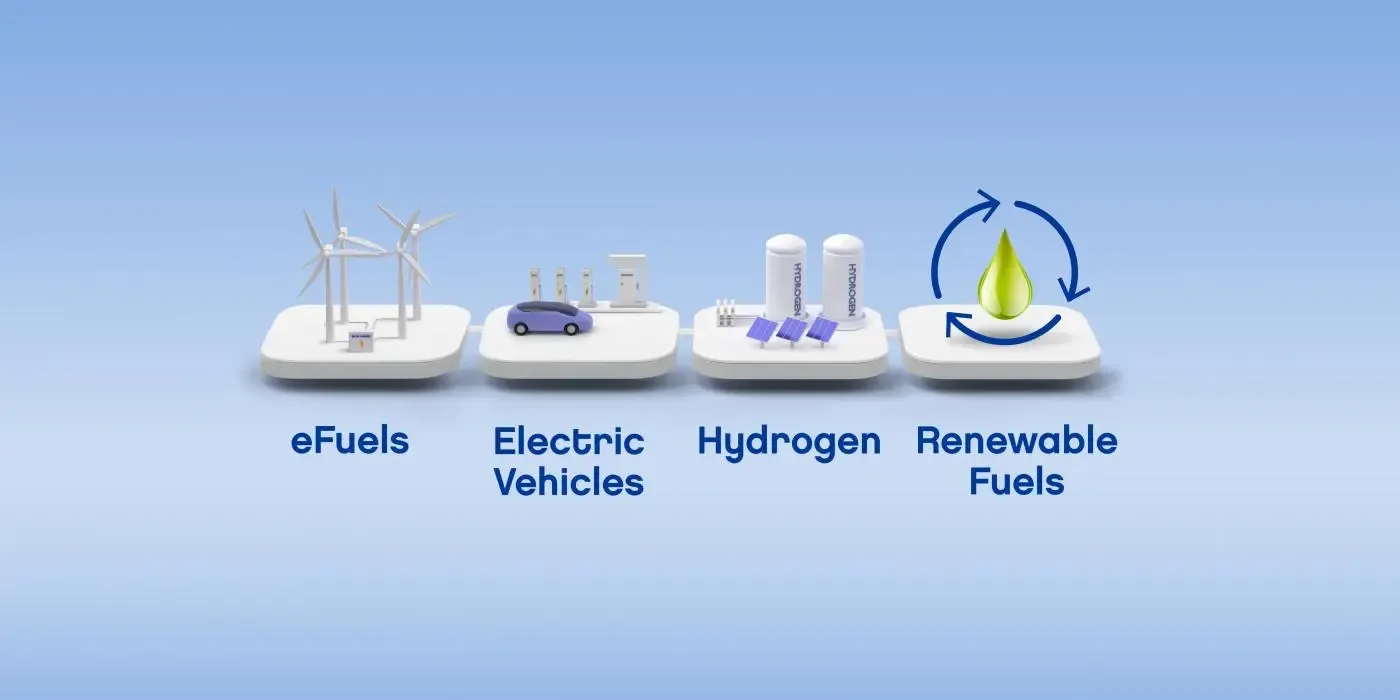
Renewable solutions
5 minute read
“An all-hands-on-deck moment” – greater urgency for fossil fuel alternatives than ever
The global urgency to reduce dependency on energy imports by adopting alternatives to fossil fuels is now clearer than ever. So what’s next?
Journalist Chris Stokel-Walker takes a look at the impact of the events of 2022 on the rhetoric around renewable and sustainable energy, and how they mark a pivot point in replacing fossil fuels with renewable energy.
Against the backdrop of an urgency to reduce reliance on fossil fuels for climate reasons, the war in Ukraine has further intensified the need to replace an enormous amount of fossil-based energy with alternatives to fossil fuels with almost immediate effect.
Both the recent UN’s Global Climate Summit COP26 in Glasgow and the latest IPCC report on climate change mitigation demonstrate changes must happen quickly to achieve climate targets. But rather than a direct switch, most national and international plans are allowing for a phased transition to new types of energy and fuels.
As Bernice Lee, Research Director at Futures, explains, "the world is in the relatively early stages of its transition away from fossil fuels. It’s not news to anybody that fossil fuel dependency is problematic for many different reasons. At the same time, what’s changed in the last couple of months is that it has really reintroduced the idea – or helped us rethink the idea – that renewables are cleaner, better, and safer.”
She adds: “We’re getting to the point where we understand that it’s not just about transitioning away from something that is very important. It’s also about rethinking the whole system.”
Renewable energy is now in the spotlight for geopolitical as well as environmental reasons - and may prove to play an important role in national and international energy security.
Accelerating change with fossil fuel alternatives
Momentum for change was already gathering pace before the war in Ukraine – this can be seen with some of the significant legislative changes that were already under way to help push us away from fossil fuels to cleaner alternatives.
For example, the European Union’s (EU) Fit for 55 package, launched in the summer 2021, introduces a three-pronged approach to replace fossil fuels with electrified alternatives where possible, and filling in the gaps with renewable fuels and biogas. The aim of this legislative package is to decarbonize 55% of the European economy by 2030 - a key milestone towards the Paris climate change agreement goal of the world being carbon neutral by 2050.
While the detail of these legislative changes is still being negotiated, there is no doubt that the recent weeks and months have had a strong impact on decision-makers’ attitudes toward fossil fuel alternatives and will undoubtedly accelerate and deepen actions to be taken.
Samuel Maubanc, Head of EU affairs at Neste, a global market leader in renewable diesel and sustainable aviation fuel, says: “There’s already been for quite some time an awful lot of political momentum around reducing the climate impact of transport.” Now there are important geopolitical motivators in addition to the green agenda: “All of a sudden, Europe realized how dependent we are on these imports of fossil fuels.”
Alternatives to fossil fuels:

Can renewable energy replace fossil fuels?
“There is an appetite globally and certainly at a European level to move away from fossil fuels for all sorts of good reasons,” Maubanc says and continues: “There’s no one size fits all solution, but each sector that relies on hydrocarbons can find a way out of the problem.”
For example, in the transport sector, the car market is already seeing a significant increase in electrification as a means to cut emissions. While this is great news, existing combustion engines will continue to dominate the roads for decades to come, particularly in heavy duty transport, which means that sustainable renewable fuels are needed to decarbonize transportation too.
Sustainable drop-in solutions such as renewable diesel, that can be used as a direct replacement to fossil fuels in combustion engines, will help significantly cut emissions with the urgency that is required.
It is clear then that switching away from fossil fuels will require a panoply of different solutions – from renewables to biogas, electricity and hydrogen. On the upside many of the solutions are already in existence – now it is a matter of radically increasing scale and application.
“We’re in an all-hands-on-deck moment, because of the urgency,” says Lee. “We need all the solutions: which means more renewables, more efficiency, and every single way of substitution that is at hand, we need to be using more than we did before.”
Lee warns that the world can’t be choosy about which options it takes to affect a change: it just needs to happen.
Maubanc concludes that the war in Ukraine has brought about a moment of reckoning, to truly look beyond fossil fuels and to open our eyes to the kind of energy sources we can access on our own doorsteps: “We’ve lived in a world for many decades where fossil fuels were in abundance and coming from pretty much anywhere. One key learning from the current crisis is how to make sure we pay attention to the fact we need to focus on what we have at our own disposal. Waste and residue based renewable fuels should be seen as a key part of the solution.”
Credits: Chris Stokel-Walker, author, speaker and journalist whose work has appeared in BBC News, The New York Times and WIRED UK.





